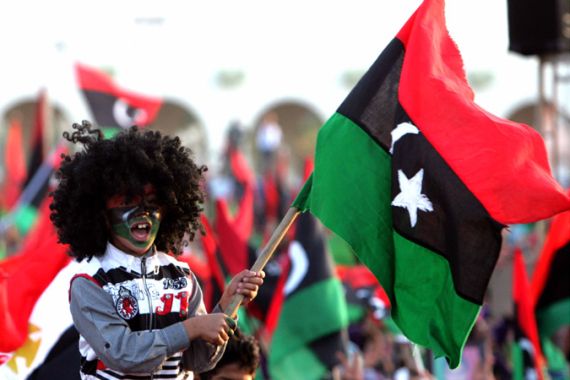
Libya: When the impossible became possible
Libyans gather in The Cafe to discuss the daunting task of rebuilding their country after the revolution.
Had anyone argued in early 2011 that Libyan “Brother Leader” Muammar Gaddafi would soon be forced out of power, they would have been labeled dreamers at best, insane at worst.
But that is exactly what happened. In mid-February, just weeks after Gaddafi berated Tunisians for ousting Zine El Abidine Ben Ali, the Libyan people rose up to say ‘enough is enough.’
For 42-years they had lived at the mercy of a totally unpredictable man and his brutal regime. Risking it all, activists in the eastern city of Benghazi had planned protests for February 17, 2011.
That day was the anniversary of a small uprising in the city five years before, when young people attacked the Italian consulate in Benghazi to protest the racism of Italy’s foreign minister at the time, Roberto Calderoli. But the protests soon turned into anti-government riots, which were crushed by Libyan forces. At least 11 people were killed, and dozens wounded.
Little did they know that their demonstration would spawn a nationwide revolt. The “17 February Revolution” of 2011 spread like wildfire across the country, turned into an armed rebellion, and received worldwide military and political support. Libyans inside the country and outside flooded into Benghazi, which was liberated from Gaddafi’s control at the outset of the conflict.
Long-time opposition leaders and high-level defectors formed the National Transitional Council (NTC) on February 27. After the fall of Tripoli in August and the killing of Gaddafi in October, the NTC appointed an interim government to manage Libya’s affairs until the people get a chance to elect their representatives. Currently those elections are scheduled for June/July 2012.
Today Libyans are breathing freely for the first time in decades. But their country needs to be rebuilt almost from scratch. A proper system of law and order must be created. Schools and hospitals must be overhauled. The country has always been oil-rich, but the wealth never trickled down to the people. And the revolution has left open wounds between the rebels and Gaddafi’s loyalists, who have suddenly found themselves on the wrong side of history.
In The Café in Tripoli, Libyans discuss the challenges they face as they try to build a modern democracy after decades of being an isolated, backward pariah state. What do they want the new Libya to look like?
|
Our Coffee Mates in this episode: – Taher Diab is a member of the National Transitional Council. He lived in exile for years in Ireland and Italy before returning to Libya two years ago. – Azza Al-Maghour is a lawyer who advocates for a bigger role for women, and for more transparency from the NTC and interim government. She is a member of Libya’s High Commission for Human Rights, and also the author of a collection of short stories. – Zahi Mogherbi is a retired professor of political science at Benghazi University. When Gaddafi’s son Saif al-Islam launched initiatives for reform in Libya over the last decade, Mogherbi was involved in the drafting of a new Libyan constitution. The draft never saw the light of day. – Mohamed Omeish is the coordinator of the February 17th Coalition in Tripoli, which organised the rebellion in the capital. He is a member of the Muslim Brotherhood. – Amira Sallak is a student of architecture and urban planning at Benghazi University. She heads an organisation focusing on youth empowerment called Bukra, or ‘Tomorrow.’ – Adam Sbita is a Libyan-American student who was attending George Mason University in Virginia when he decided to leave the US and join the fighting against Gaddafi’s forces. |
The Cafe airs each week at the following times GMT: Friday: 2000; Saturday: 1200; Sunday: 0100; Monday: 0600. Click here for more on The Cafe. |
